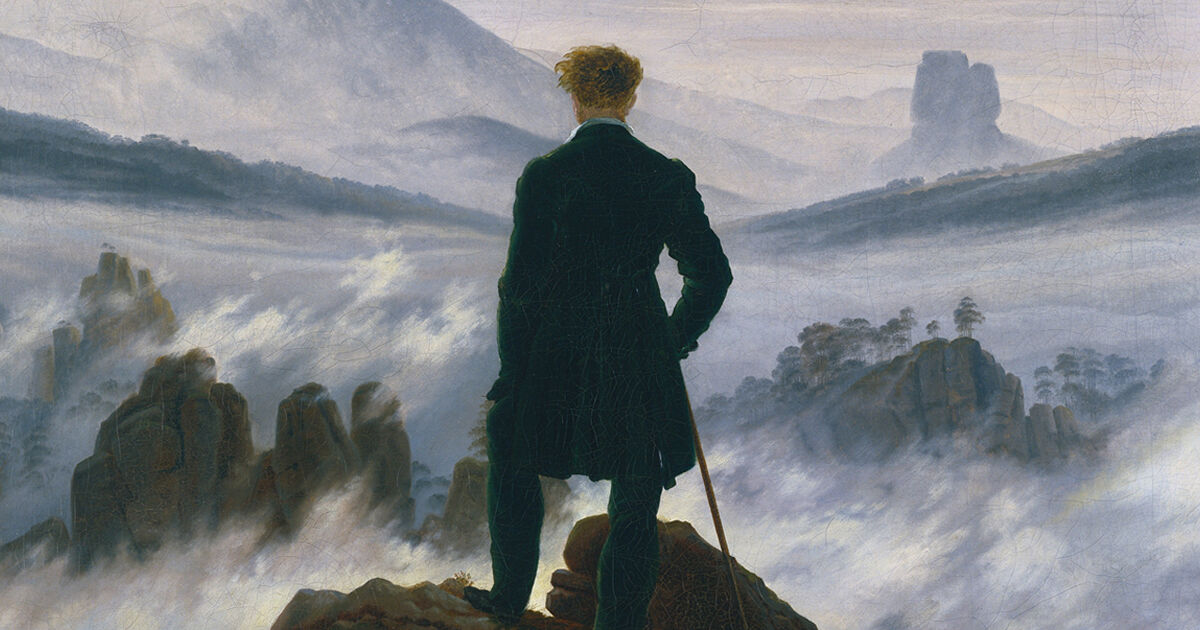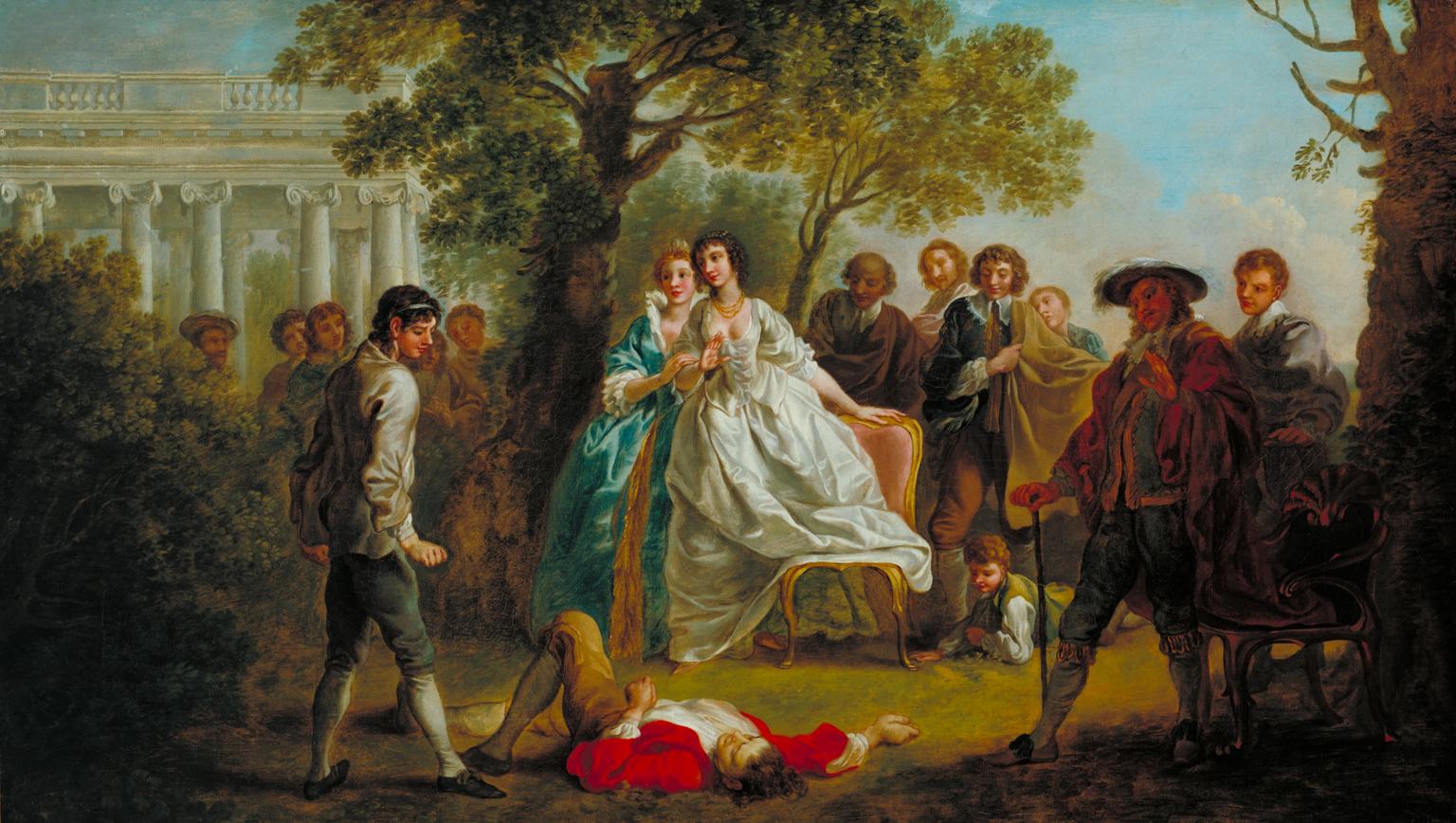Poetry

The poems below were curated for this project by Tim Morton. The illustration above was created by Marissa Shea.
Fall 2024 Event
A Discussion of Poetry by William Blake, Maya Angelou, and Audre Lorde - Tim Morton
- September 12 at 12PM in the Humanities Commons
Nature

"Ralph Waldo Emerson's Nature ( 1836 ) is a landmark publication in American literature, a classic statement of transcendentalism that perhaps more than any other document influenced the literary imagination of the Romantic period in the United States (approximately 1830-60). In his essay, originally published anonymously as a ninety-five-page book, Emerson provocatively advocates religious living based on experience rather than tradition, asking his readers to find spiritual sustenance not in organized religions such as Christianity but in communion with nature. Nature, Emerson writes, is to be understood in two ways: commonly as all that pertains to the natural world, and more philosophically as everything that is distinct from the soul." ~ From The Manifesto in Literature
Access Options:
Fall 2024 Event
A Discussion of Ralph Waldo Emerson's Nature - Cary Wolfe
- October 3rd at 12PM in the Humanities Commons
Genesis

"GENESIS, BOOK OF, the first book of the Pentateuch. The English title refers to the opening theme of the book and is derived, via the Latin transliteration, from the tradition of the Alexandrian Jews as reflected in the Septuagint Greek: genesis, "origin"). The book describes not only the origin of what would later be called the universe, but the origins of the people Israel and some of its specific practices including the Sabbath and circumcision. Genesis includes numerous etiologies for, among others, labor pains and fruitless labor. The Joseph story, which concludes the book, provides the background for Israel's descent into Egypt, and accordingly, for the enslavement, exodus, and arrival at the border of the promised land to which the next four books of the Pentateuch are devoted. " ~ From Encyclopaedia Judaica
Access Options
Fall 2024 Event
Composting Religion: Genesis and Human Being - Timothy Beal
- October 8 at 12PM in the Humanities Commons
Origin of Species
"Darwin published his theory of evolution as the theory of the mutation of species in Origin of the Species by Means of Natural Selection, or the Preservation of Favoured Races in the Struggle for Life (1859). He argued that species of fauna and flora have developed from a common ancestor. The mechanism for the mutation of the members of a species into another species is natural selection that was similar to the way breeders or growers utilize certain species for selective breeding. Natural selection takes place among the enormous numbers of individuals in a species struggling for survival. Eventually, enough changes take place that new species emerge. Geographic isolation and genetic drift are two mechanisms that make the development of species change possible." ~ From Encyclopedia of Environment and Society
Access Options:
- Project Gutenberg eBook (Open Access)
- LibreVox Audiobook (Open Access)
- Origin of Species (Rare Book)
Fall 2024 Event
Darwin's Orchids: Evolution, Natural Law, and the Diversity of Desire - Donovan Schaefer
- October 31st at 12PM in the Humanities Commons
Frankenstein

"On the shores of Switzerland's Lake Geneva in the summer of 1816, nineteen-year-old Mary Wollstonecraft Godwin (1797–1851); her future husband, Percy Bysshe Shelley; and their charismatic friend Lord Byron engaged in a ghost-story contest. After seeing a vision of what she called “the hideous phantasm of a man,” the woman who would be known as Mary Shelley began writing Frankenstein; or, The Modern Prometheus, the gothic novel that would bring her lasting fame. Even before Shelley's name was widely known, theatrical versions of her novel—the tale of Victor Frankenstein and his monster—frightened and appalled audiences all over Europe." ~ From Encyclopedia of Popular Culture
Access Options
- Project Gutenberg eBook (Open Access)
- Frankenstein Annotated for Scientists, Engineers, and Creators of All Kinds (Full eBook - Open Access)
- LibreVox AudioBook (Open Access)
- Blackeyed Theatre Production (2022 Video - Requires UR ID)
- Frankenstein / BBC : Production (2007 Video - Requires UR ID)
- Frankenstein (Rare Book)
Fall 2024 Event
A Discussion of Mary Shelly's Frankenstein - Susan Stryker
- November 14 at 12PM in the Humanities Commons
As You Like It

"As You Like It is with Twelfth Night one of the two great romantic comedies from Shakespeare’s middle period. Its date is generally reckoned as 1599, making it roughly contemporary with Julius Caesar and Henry V and placing it on the threshold of the period of the mature tragedies, beginning with Hamlet (1600-1601). It has much in common with the later Twelfth Night, including the motif of cross-dressing, where a young woman in one or another kind of exile assumes a male identity (which on the stage is simply effected by adopting male costume) on the pretext of making herself secure in a world hostile to unprotected maidens." ~ From William Shakespeare: The Comedies
Access Options:
Toni Morrison
A Mercy: A Novel
"A national best seller, deemed "one of Morrison's most haunting works" by the New York Times, A Mercy reveals what lies beneath the surface of slavery. But at its heart, like Beloved , it is the story of a mother and a daughter—a mother who casts off her daughter in order to save her, and a daughter who may never exorcise that abandonment. In the 1680s the slave trade in the Americas is still in its infancy. Jacob Vaark is an Anglo-Dutch trader and adventurer, with a small holding in the harsh North. Despite his distaste for dealing in “flesh,” he takes a small slave girl in part payment for a bad debt from a plantation owner in Catholic Maryland. This is Florens, who can read and write and might be useful on his farm. Rejected by her mother, Florens looks for love, first from Lina, an older servant woman at her new master's house, and later from the handsome blacksmith, an African, never enslaved, who comes riding into their lives" ~From the Publisher
Access Options
Beloved
"Staring unflinchingly into the abyss of slavery, this spellbinding New York Times bestseller transforms history into a story as powerful as Exodus and as intimate as a lullaby. Sethe, its protagonist, was born a slave and escaped to Ohio, but eighteen years later she is still not free. She has too many memories of Sweet Home, the beautiful farm where so many hideous things happened. And Sethe’s new home is haunted by the ghost of her baby, who died nameless and whose tombstone is engraved with a single word: Beloved. Filled with bitter poetry and suspense as taut as a rope, Beloved is a towering achievement." ~From the Publisher
Access Options
Margaret Garner
"An opera based upon Toni Morrison's novel, Beloved. Margaret Garner, a slave separated from her husband by a white slave-owner, was forced to become his mistress. In 1856, she fled from Kentucky with her family to Ohio where she killed her two little girls to prevent them from being enslaved." ~ From the Publisher.
